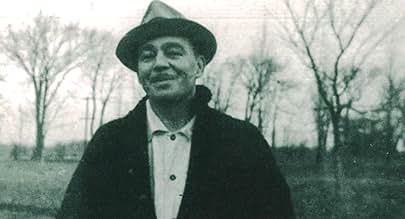Marlon Brando Sr.(1895-1965)
- Producer
The movie industry executive and producer Marlon Brando, Sr. was the
father of Marlon Brando Jr., whom many consider the greatest movie actor of
all time, and of movie and TV actress Jocelyn Brando. Marlon, Jr. made his
father, a former salesman and businessman, the head of his personal
production company in Hollywood, Pennebaker Productions, which was
named after Sr.'s wife and Jr.'s mother, the former Dorothy Pennebaker.
The company produced many pictures, though most starred other
superstars other than Brando, including James Cagney, Gary Cooper, Paul Newman and
Sidney Poitier.
Marlon Sr. was a hard-drinking womanizer who was frequently on the road, which did little to prevent his wife's descent into the alcoholism which killed her at a relatively young age in 1954. The Brando family was often uprooted, moving from Nebraska to Illinois and eventually (without Marlon Sr.) to New York City (where the three Brando children attended acting and art schools). Brando Sr., a World War One veteran, was a hard, unaffectionate man, and his son harbored a great deal of resentment and anger towards him until the day he died on July 18, 1965 at the age of 70. By that time, he had managed to lose a great deal of his son's money in unwise investment schemes, and to marry a woman many years his junior after the death of his wife and Marlon's mother.
Brando Sr. sent his son to his alma mater, the military school Shattuck Academy, from which Marlon Jr. eventually was expelled. During their lives together, Sr. and Jr. often were in conflict. Father and son bore an uncanny physical resemblance to one another, and resembled each other in ways that Marlon, Jr. cared not to contemplate, such as a lack of constancy and faithfulness. According to more than one biography of Marlon Brando Jr., the son cuckolded the father by seducing his second wife, a clear case of the Oedipal complex if there ever was one.
Brando used his memories of both his parents in the improvised scene in Last Tango in Paris (1972) ("Last Tango in Paris") where he recalls his childhood. In the scene, he remembered his father as a "whore-f#@%er and bar-fighter" and confessed that he didn't have too many good memories of the past, except for his mother teaching him to love nature.
Brando, Jr.'s first wife Anna Kashfi, in her 1975 memoir "Brando for Breakfast", claims that Anthony Quinn once told her that while he envied her husband's talent, he did not envy the pain that caused it, pain in Quinn's estimation, being an irritant like the grain of sand that causes an oyster to create a pearl. In this sense, Marlon Brando Sr. could be considered one of the main factors that enabled his son to deliver the pearls of his talent, his brilliant performances of men who generally are fatherless.
Marlon Sr. was a hard-drinking womanizer who was frequently on the road, which did little to prevent his wife's descent into the alcoholism which killed her at a relatively young age in 1954. The Brando family was often uprooted, moving from Nebraska to Illinois and eventually (without Marlon Sr.) to New York City (where the three Brando children attended acting and art schools). Brando Sr., a World War One veteran, was a hard, unaffectionate man, and his son harbored a great deal of resentment and anger towards him until the day he died on July 18, 1965 at the age of 70. By that time, he had managed to lose a great deal of his son's money in unwise investment schemes, and to marry a woman many years his junior after the death of his wife and Marlon's mother.
Brando Sr. sent his son to his alma mater, the military school Shattuck Academy, from which Marlon Jr. eventually was expelled. During their lives together, Sr. and Jr. often were in conflict. Father and son bore an uncanny physical resemblance to one another, and resembled each other in ways that Marlon, Jr. cared not to contemplate, such as a lack of constancy and faithfulness. According to more than one biography of Marlon Brando Jr., the son cuckolded the father by seducing his second wife, a clear case of the Oedipal complex if there ever was one.
Brando used his memories of both his parents in the improvised scene in Last Tango in Paris (1972) ("Last Tango in Paris") where he recalls his childhood. In the scene, he remembered his father as a "whore-f#@%er and bar-fighter" and confessed that he didn't have too many good memories of the past, except for his mother teaching him to love nature.
Brando, Jr.'s first wife Anna Kashfi, in her 1975 memoir "Brando for Breakfast", claims that Anthony Quinn once told her that while he envied her husband's talent, he did not envy the pain that caused it, pain in Quinn's estimation, being an irritant like the grain of sand that causes an oyster to create a pearl. In this sense, Marlon Brando Sr. could be considered one of the main factors that enabled his son to deliver the pearls of his talent, his brilliant performances of men who generally are fatherless.








